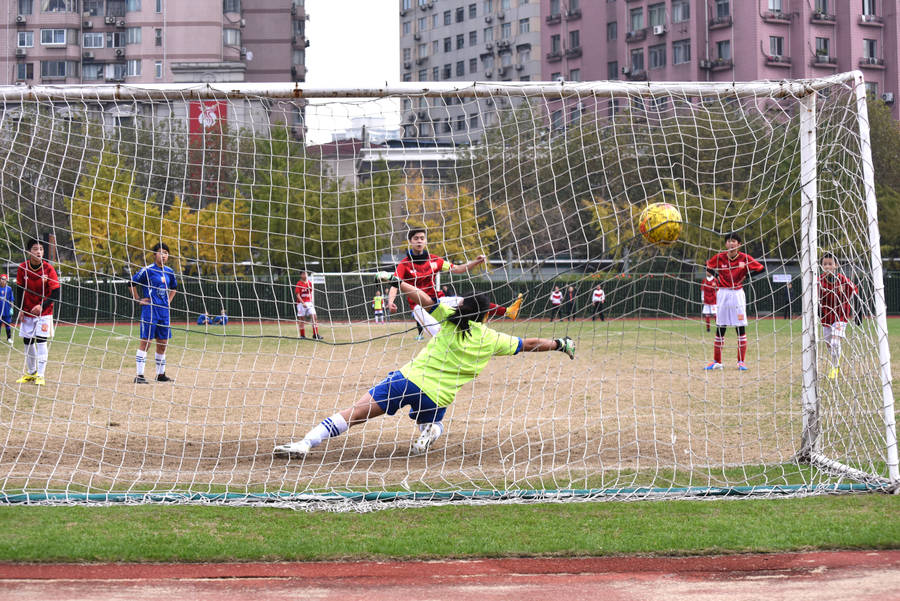
The landscape of football in the United Kingdom has undergone a seismic shift in recent years. The success of the Lionesses in the 2022 European Championship catapulted women's football into the national spotlight, inspiring a new generation of girls to take up the game. Participation numbers have soared, with the Football Association reporting a 17% increase in female players since the Euros victory. Our club now has as many girls teams as boys teams for the first time in its history. Yet, as we celebrate these strides forward there is a glaring disparity that remains in the coaching ranks, particularly at grassroots level. Where are the female coaches?
The statistics paint a stark picture. As of 2021, only 5% of UEFA A Licence holders in England were women. At grassroots level while exact figures are harder to pin down, anecdotal evidence suggests the percentage of female coaches is even lower. This imbalance isn't just a numbers game, it has profound implications for the development of the sport and the experiences of young players.
The reasons behind this underrepresentation are multifaceted and deeply rooted. Cultural stereotypes persist, with coaching often perceived as a male domain. Some women report feeling intimidated or unwelcome in coaching environments, facing subtle (and sadly sometimes overt) discrimination. Beyond that, there are the barriers faced by all coaches. We know the pathway to becoming a coach can be unclear and the time commitment required for training and volunteering can be challenging, especially for those balancing multiple responsibilities. Financial barriers also play a role, with coaching courses and certifications often representing a significant investment.
Still, the need for more female coaches in grassroots football has never been more pressing. Dr. Leanne Norman, a researcher at Leeds Beckett University specialising in gender equality in sport coaching, emphasises the importance of representation: "Female coaches serve as crucial role models, especially for young girls. They demonstrate that leadership in football is not limited by gender, encouraging more girls to see themselves as future leaders in the sport."
This sentiment is echoed by Sarah Lowden, a grassroots coach from Manchester. "When I started coaching, I was often the only woman on the sidelines," she recalls. "But I've seen firsthand how my presence has encouraged more girls to join and stick with football. They see me and think, 'If she can do it, so can I.'" Sarah's experience is not unique. Numerous studies have shown that the presence of female coaches significantly impacts girls' participation and retention in sports.
The benefits of having more female coaches extend beyond just encouraging girls' participation. Female coaches often bring different perspectives and coaching styles to the game. Emma Hayes, the highly successful former manager of Chelsea Women's FC and now the United States national team, has spoken about the unique qualities women can bring to coaching. "Women often have a more holistic approach," she notes. "We tend to focus on the person as well as the player, which can be incredibly beneficial, especially at the grassroots level where we're shaping not just footballers, but young people."
This holistic approach can be particularly valuable in grassroots football, where the focus is not just on developing skills, but on helping develop a love for the game and building character. Female coaches sometimes emphasise communication, emotional intelligence and teamwork alongside technical skills, creating a more rounded development experience for young players.
The presence of female coaches can also help challenge and change longstanding cultural norms within football. Dr. Norman's research suggests that diverse coaching teams lead to more inclusive environments, benefiting all players regardless of gender. "When boys see women in positions of authority in football from a young age, it helps normalise female leadership and can contribute to breaking down gender stereotypes," she explains.
The impact of this normalisation extends beyond the pitch and is desperately needed with a crisis of violence against women and girls plaguing contemporary society. We know that football, as the UK's most popular sport, has significant cultural influence. By increasing the visibility of women in coaching roles, particularly at grassroots level, football can play a part in broader societal shifts towards gender equality.
However, achieving this shift requires a concerted effort and systemic change. The FA has recognised this need and has implemented several initiatives to increase the number of female coaches. The "Women's Coach Development Programme" aims to create a network of female coaches and provide mentoring opportunities. Additionally, bursaries are available to help offset the cost of coaching courses for women.
Yet, more can be done. Claire Bloomfield, CEO of Women in Football, argues for a more proactive approach: "We need to actively recruit women into coaching roles, create clear pathways for advancement, and ensure that coaching environments are welcoming and supportive." She suggests that clubs and local football associations could play a crucial role by setting targets for female coach recruitment and providing additional support and mentoring.
Some grassroots clubs are already leading the way. The Wildcats programme, initiated by the FA to provide football opportunities for girls aged 5-11, has been a breeding ground for female coaches. Many Wildcats sessions are led by women, often former players or parents who have been encouraged to take up coaching roles.
One such coach is Jasmine Lawson from Bristol. "I never saw myself as a coach," she admits. "But when my daughter joined Wildcats, I was encouraged to get involved. Now, I can't imagine not doing it. It's incredibly rewarding, and I feel like I'm making a real difference." Jasmine's story not only chimes with how many of us stumbled in to grassroots coaching, but also highlights the untapped potential within communities. Women who may not have previously considered football coaching, but given the right opportunity and support can become invaluable assets to grassroots football.
The benefits of increasing female representation in coaching extend to male players as well. Research by the Women's Sport Foundation suggests that both boys and girls can benefit from having female coaches, as it exposes them to diverse leadership styles and helps break down gender stereotypes from an early age.
However, it's crucial to acknowledge that simply increasing the number of female coaches is not enough. The quality of coaching education and ongoing support is equally important. Dr. Norman has emphasised this point, "We need to ensure that women are not just present in coaching roles, but that they have the tools, knowledge, and support to excel in these positions."
This may call for a rethink of coaching education. Traditional coaching courses may not always align with women's learning preferences or life circumstances. Flexible learning options, online modules and courses that acknowledge and address the specific challenges female coaches might face could help make the pathway to coaching more accessible.
The importance of mentorship cannot be overstated. Established female coaches can play a crucial role in guiding and supporting newcomers. The FA's mentoring programme is a step in the right direction, but grassroots clubs can also implement their own mentoring schemes, pairing experienced coaches with those just starting out. It's also vital to address the cultural barriers that often deter women from pursuing coaching roles. This includes challenging the persistent stereotypes about women's capabilities in football.
At individual club level, creating welcoming and inclusive environments for female coaches is crucial. This might involve reviewing and updating club policies, providing gender specific facilities and actively promoting a culture of respect and equality.
Getting more female coaches into the game is not just about achieving numerical equality, but about enriching the sport, providing diverse role models, and creating an environment where everyone feels they can contribute and succeed. The journey towards greater representation of female coaches in grassroots football is ongoing. It requires commitment from governing bodies, clubs and communities. It demands that we challenge our preconceptions, create new pathways and actively support women in taking on leadership roles in the sport. But the potential rewards are immense, a richer and more diverse football culture that truly reflects and serves all members of our communities.

















